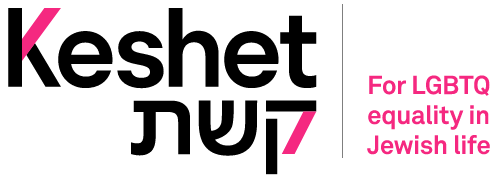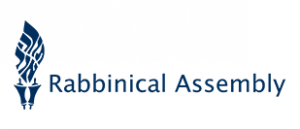Calling Up the the Torah
A good name is more desirable than great riches;
to be esteemed is better than silver or gold.
Proverbs 22:1
Over the years of my rabbinate, I have been privileged to help many people find and embrace their own Hebrew names, as well as the names of their children. I’ve poured over naming books with those who choose to be Jewish, and with those who never had a Hebrew name and always wanted one. My passion for names probably comes from my own experience of finding one. Never having been given a Hebrew name, and hoping to be called up to the Torah for an aliyah, I searched for my own name. It turns out that my Mom really liked the name, Carolyn. I wasn’t named after anyone in the family, she just thought it was a beautiful name! I don’t remember why, but it was our Cantor, my Hebrew teacher, that chose the name, Ariela. I love it; it means Lion of God (and I am a Leo). It’s also an obscure name for Jerusalem. There are many ways we can come up with names. Some of us are named after beloved relatives (Ashkenazi Jews only use the names of the deceased; Sephardi Jews are often named after someone who is living), some of us are given names that reflect our best qualities or our namer’s wish for our best qualities, and sometimes the name just sounds beautiful.
As you probably know, our Hebrew name also includes the names of our parents. In the past, we have been known as
ploni (any name)
ben (son) or
bat
(daughter) of parent #1 and parent #2. As I was searching for my name, I also asked my parents for theirs. They had no idea if they even had Hebrew names! So, I did what every Ariela might do - I named them myself! After conducting some research, I found out that my mother might have been called Goldie, so I named her Zahava (Hebrew for gold). My father’s name was Robert, so I named him Reuven. Thus, I became Ariela bat Reuven v’Zahava and I’m sticking with it!
Name are important. They are a big part of our identity. While I completely understand why we might not know our Hebrew name since we don’t use it often (enough, LOL), it is one aspect of who we are. A Hebrew name is used (though we can also use English) at crucial times in our lives: at birth, at Brit Mitzvah, whenever we are called to the Torah, at weddings and when we die. For those who have children, our Hebrew name is used in their lifecycle events as well. Generations of family are remembered through our names.
Because we deeply respect and honor each individual and their name, it behooves us to honor their whole being. Many do not identify as a “son” or as a “daughter,” yet they identify with their name. And so, an acceptable way of naming them is to say that they are
ploni
mibeit
ploni v’ploni, that is [name]
from the house of [parent #1] and [parent #2]. Of course, there are variations on the parent’s names. One doesn’t need to have two parents for a Hebrew name, nor for those with two parents do they need to be male and female. When one becomes Jewish, their Jewish parents traditionally are Abraham and Sarah, but there are variations on this too. At TBE, our minhag is to only include the names of those who are Jewish.
Similar to last week’s thoughts, this too is a long introduction to our new Aliyah cards. Again, thanks to Leo Levine Sporer and Joy Krinsky,
we have cards that are welcoming, informative and honor the identity of each person called to the Torah. First of all, everyone is called up with gender neutral language. Rather than
ta’amod or ya’amod
“rise’ (female or male), we say
Na la’amod “Please rise…” Then, as the person approaches the Torah, they say their Hebrew name and use either
ben, bat or mi beit. The Gabbai (person who calls people to the Torah) repeats the name and the aliyah goes on from there! You will also see a big “welcome” and “thank you” on the card, as well as the Torah blessings. One of the goals of the Ritual Committee and of TBE is to remove as much “inside baseball,” as possible and be sure our rituals are accessible. On every card: Opening/Closing the Ark, Lifting the Torah, Wrapping the Torah, and Blessing the Torah Reading, there are instructions explaining the honor. Our thought is that after you accept the honor, you have some time to remind yourself of how it is done. Of course, there are always “Bima Demons” that get us confused even though we know what we’re doing, so there will always be people around to step in and help out. It takes a village to read Torah(!).
Looking forward to seeing you, and honoring you some Saturday morning!
Shabbat Shalom.



